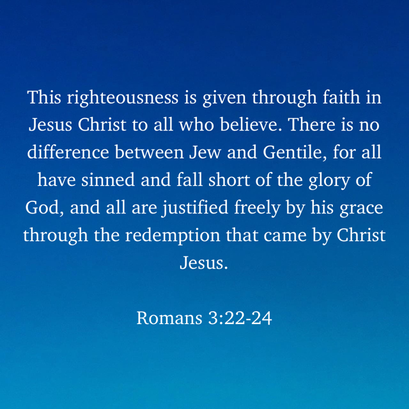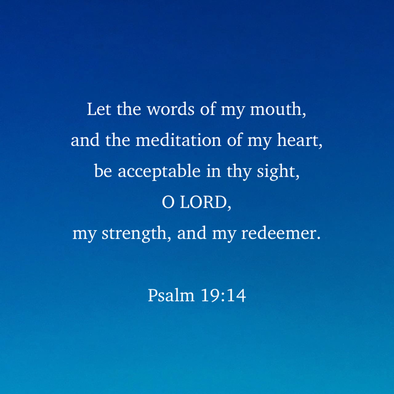|
Good morning!
We're so glad you decided to join us today!
We are not meeting in person for Sunday School today. Instead, we are having worship at 10 am at the Washington County Fair.
We will see you next week, in person, for Sunday School!
When we meet in person, we take time to share joys and concerns. Consider your last couple of weeks, and the upcoming week. If you have any prayer requests to share, please add a comment on this post. When you are ready, use the prayer below (source) to begin.
Most Merciful God, we join our voices in this prayer of confession because we realize that we are united with each other in our own sinfulness. We all sin in ways that are unique to us as individuals. We say and do things that go against Your will for our lives. Forgive us for considering others' sins worse than our own. Forgive us for being so quick to recognize the sin in others, yet slow to see it in ourselves. Grant us the humility of spirit and the gladness of heart that comes from knowing that Jesus died to take away the sins of the world. Touch our lives with Your healing grace and create in us clean hearts. We pray these things in the Name of Jesus Chris, our Savior. Amen
This week's lesson is on Romans 14:10-23.
Have you ever had a day to do just what you wanted, only to feel let down afterward? Maybe it was a day off of work. Maybe friends gave you a break from your normal duties. Somehow, we often experience disappointment at the end of such times.
Why does that happen so often? Perhaps it is, to some extent, because we long to be part of something bigger than ourselves. “Me time” sounds great, but God has put in us a desire that our lives matter for others. I had so much “Me time” during the pandemic that I knew I needed to be a part of something else. The church is too often (because even once is too often!) the place where people seem most devoted to their own preferences. Churches have become infamous for the pettiness of their arguments over matters of opinion. We all grieve the fact, but it is likely that we all have been part of the problem at times. Today's lesson will be the uncomfortable mirror in which we see ourselves in this regard. Our text comes from Paul's letter to the Romans. The letter addresses a church divided between Jewish and non-Jewish (Gentiles) followers of Jesus. While we cannot know the exact circumstances, it appears to that each group looked down on the other for the way it practiced life in God's kingdom. Paul wrote this letter to show each group that they belong to God's kingdom on the same terms: faith in Jesus to God's good news about him. So Paul says “first to the Jew, then to the Gentile” that each group has the same status. All have sinned, both Jews and Gentiles. Paul's addressees belong to God's kingdom not by observances of the Law of Moses, which defined the Jewish people . Rather, they belong by faith in Jesus, who died that all might live eternally. This equality of status must be practiced. Jews were accustomed to keeping the laws of clean and unclean laid out in the Law of Moses. In a city like Rome, finding meat that was ceremonially clean was probably difficult. Add to that the fact that much meat had been sacrificed to pagan idols, and it appears that many Jews in Rome simply given up meat altogether. Meanwhile, Christians from a Gentile background had been brought into God's kingdom by their faith in Jesus, being formerly excluded because they did not belong to the people of Israel. They had never been subjected to the laws of clean and unclean. For Jewish followers of Jesus, dietary restrictions had always been a sign of devotion to God. But for Gentile followers of Jesus', these rules seemed strange and unnecessary. Whose rules should prevail? Both Jews and Gentiles are guilty of sin but that both can be restored to God's kingdom by expressing faith in Jesus. No Christians regardless of background identity, can judge another status on other criteria. To do so over foods is most unfitting for a follower of Jesus. There are two reasons for not passing judgment on others. First, if any judging is to be done with regard to practices of dietary choices, that will be God's prerogative, not ours. Second, we will be called to account on the last day for all judgments we formulate. God alone is Judge. Now through Jesus' death and resurrection, God had ended the deeper exile of sin and has made salvation available to all nations. As a result, no human group or category has a privilege over another. Every knee will bow, and every tongue will acknowledge God as ultimate king. Judging fellow believers is to give way to caring for them. Paul uses figures of speech to describe such caring; a stumbling block is something in a roadway that can makes someone trip, or an obstacle is something that blocks a path or causes a misstep. Paul reaffirms that there is no difference between clean and unclean foods. This reflect what the Lord Jesus declared; purity is not about food but a person's inner character, Israel's rules regarding clean and unclean food were always intended by God not as definitions of right and wrong behavior for all people, but as cultural boundaries that defined Israel as a distinct nation. Good and evil have always been about our inner dispositions that drive our actions. Paul states that if another Christian believes that a food is unclean then we should not partake so we do not become a stumbling block to them. Rules and practices regardless food are among the most obvious ways that group of people mark their differences from other groups. Food preferences are central to a people's culture. Even apart from Israel rules of clean and unclean, those rules were important to the Israelite because they were observed constantly. But Paul reminds us that God's kingdom is not merely about what is easily seen. Food is nothing compared to what God has done in Christ, what now defines his people as subjects of his kingdom. God's peace is not just a cessation of strife. It is harmony in loving, caring relationships. The gospel calls us not just to get along but to work for one another benefit. Joy flows from the abiding sense of confidence that God is making things right as he establishes his kingdom. Peace and joy are among the fruit of the Holy Spirit. Deferring to others' concerns even gains human approval. In social structures of the first century AD, Jewish Christians stood apart from the larger Jewish communities because of their acceptance of Gentiles as God's people. Gentile Christians, for their part, had abandoned the pagan worship that required loyalty to the Roman Empire. If these two groups became known for their arguments over food, their credibility would suffer all the more. But if they could demonstrate love, their example could shine. When the church fights, a vile reputation results. When its members love as Christ did, we become the salt and the light of the world. The peace of God's kingdom is a gift of God. But putting peace into practice is not automatic. They must apply diligent effort to make sure that everyone in Christ's body is respected, included and loved. Conflicts will be necessary when confronting doctrinal defection, moral defection or divisiveness. But such conflict should serve the greater good in protecting the integrity of the church.
Conclusion
Peace, Not Conflict Up to the point of today's lesson text in Romans, Paul had spent many chapters reminding Christians in Rome that no group had any preference before God. Faith in Jesus-not being in a certain biological lineage or doing better works-is what brings sinners of every ethnicity into God's kingdom. United with him in death and resurrection, they are now dead to sin. They live a new life, empowered by God's Spirit, transformed to love and serve one another. But can we bring that truth to shared meals? Can we exercise our faith in such a way as to defer to one another as we learn to use our freedom for the benefit of others, not ourselves? The concern of those with strong faith should be for the welfare of those with weaker faith toward greater understanding. Of such love, grace, patience, and edification is the kingdom of God. Prayer Gracious Father, we thank you for our freedom in Christ. Lead us to use that freedom to build up others, never to tear down. May we be instruments of your peace in the name of your Son. Amen
Questions for discussion
Benediction
This week's benediction is from the Tree of Life Version.
Next week's lesson will be on 1 Corinthians 4:1-6, 17-21. We will be back in person then.
0 Comments
Leave a Reply. |
AuthorWe are a small, rural Presbyterian church in southwestern Pennsylvania. Archives
July 2024
Categories
All
|



 RSS Feed
RSS Feed